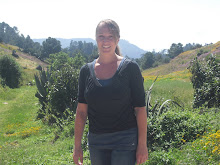The government of Oaxaca has established 54 mediation centers in cities and small towns throughout the state. Each center houses at least one trained mediator who is available to facilitate mediation sessions at no cost to the participants. These are places where people can go for help and support in resolving all types of conflicts, ranging from family disputes to contractual disagreements. The state is committed to expanding access to mediation services, and the number of mediation centers is growing rapidly. When I was in Oaxaca one year ago, there were 30 centers. In just one year, 24 additional centers have been established!
At a time when Mexico is reforming its criminal justice system to be more like the U.S. system – with oral hearings and trials for the first time in the country’s history – there is a lot that the U.S. can learn from Mexico. Mexico’s court systems are not set up to handle the often time-consuming procedures associated with oral hearings and trials. In the past, court proceedings have occurred purely in written form. As you might guess, once lawyers have the opportunity to speak in court, things tend to take longer! So it is perhaps out of necessity that in the process of designing new procedures to include oral trials, the state of Oaxaca is incorporating alternative ways for people to resolve conflicts.
Aside from the issue of volume, there are other reasons why localized mediation centers are critical in Oaxaca. Firstly, there is the issue of geography. Oaxaca is comprised of two large mountain ranges. Many of the states’ residents live in rural, geographically isolated areas. Streets and highways are costly and therefore scarce in the midst of such enormous mountain ranges. And so for someone who lives in an isolated village to seek help from a court in the nearest city would be extremely difficult. Without a community-based option, many people would have no access to government assistance when they have a conflict (which could otherwise likely be defined as a legal issue.)
In addition to geography, there is the issue of communication. Within the state of Oaxaca, there are many people who do not speak Spanish. In many communities, the primary language is one of 16 different indigenous languages. Due to the language differences, it is even more important that community-based mediators be available to communicate with people at the local level, using the appropriate language and cultural framework in order to successfully mediate conflicts.
At first glance, the issues facing Oaxaca are very different from those in Los Angeles, or in other urban areas of the United States. Upon a deeper inspection, however, there are common threads. In Los Angeles, for example, one court building handles cases from a large geographic radius, making access difficult. Geographic access if even more of an issue given the territorial nature of gangs in the city. Travelling from one community to another means risking being killed for people with gang associations, for example. Perhaps even more importantly, courts and law enforcement offices are not set up to be culturally specific. And although the Los Angeles court system has plenty of interpreters to address the issue of language, true communication often involves a cultural specificity that goes deeper than language. Having community-based mediation centers staffed with mediators familiar with the particular geographic and cultural issues of the community they serve could lead to more meaningful conflict resolution.
A mediator in Oaxaca explained to me that the mediation centers are “an open door” before someone turns to the formal court system. Participation is voluntary, and the parties to the conflict themselves develop a solution. As he was talking, I was thinking about the parents who would bring their children to the juvenile court where I worked as a public defender in Los Angeles. Even though their children had not broken the law, parents would bring them to the court building because they did not know where else to go for help. Similarly, many other parents called the police to respond to family disputes because they did not know where else to go. Imagine if there were accessible community mediation centers that people could turn to for help…



No comments:
Post a Comment